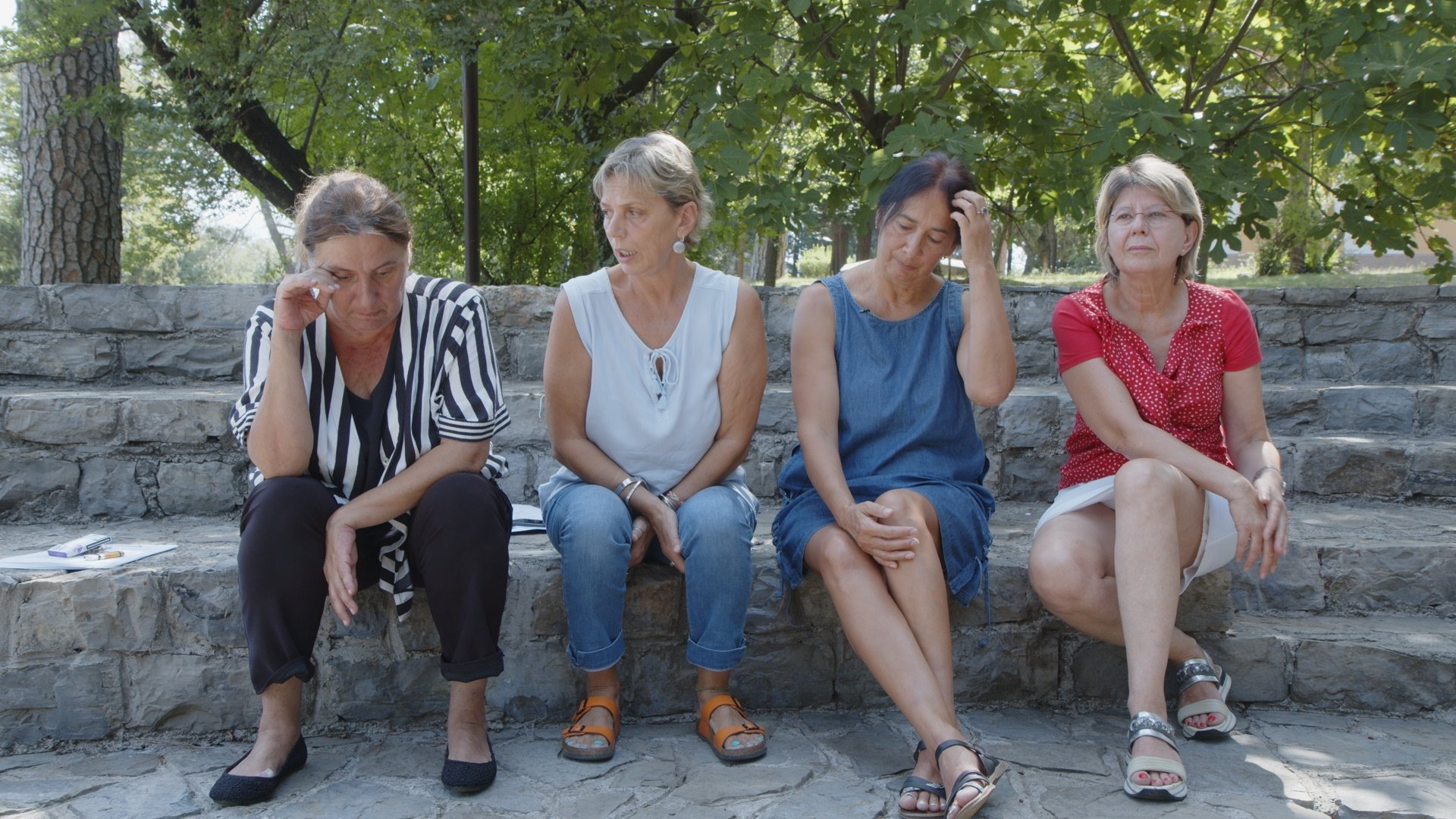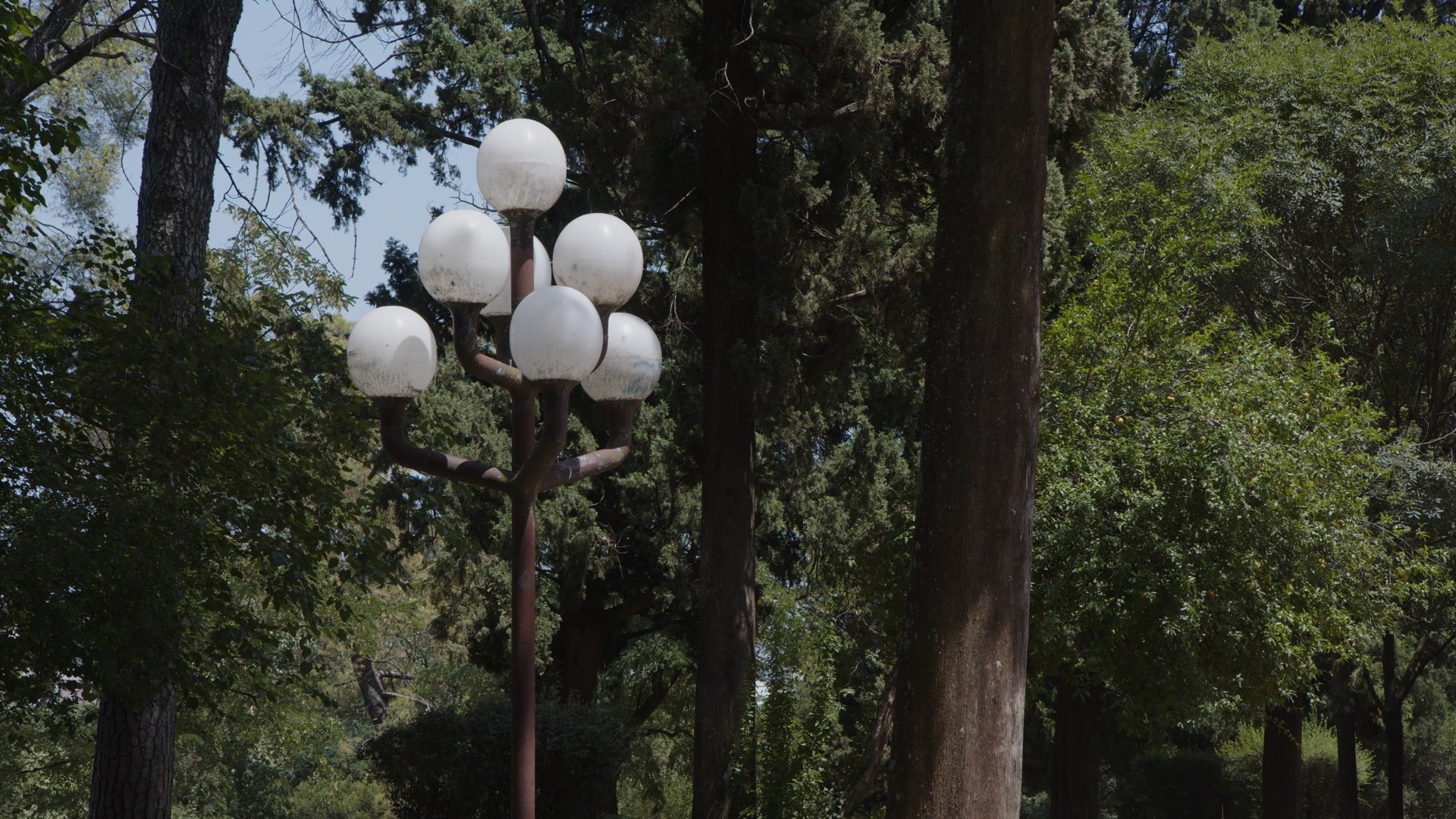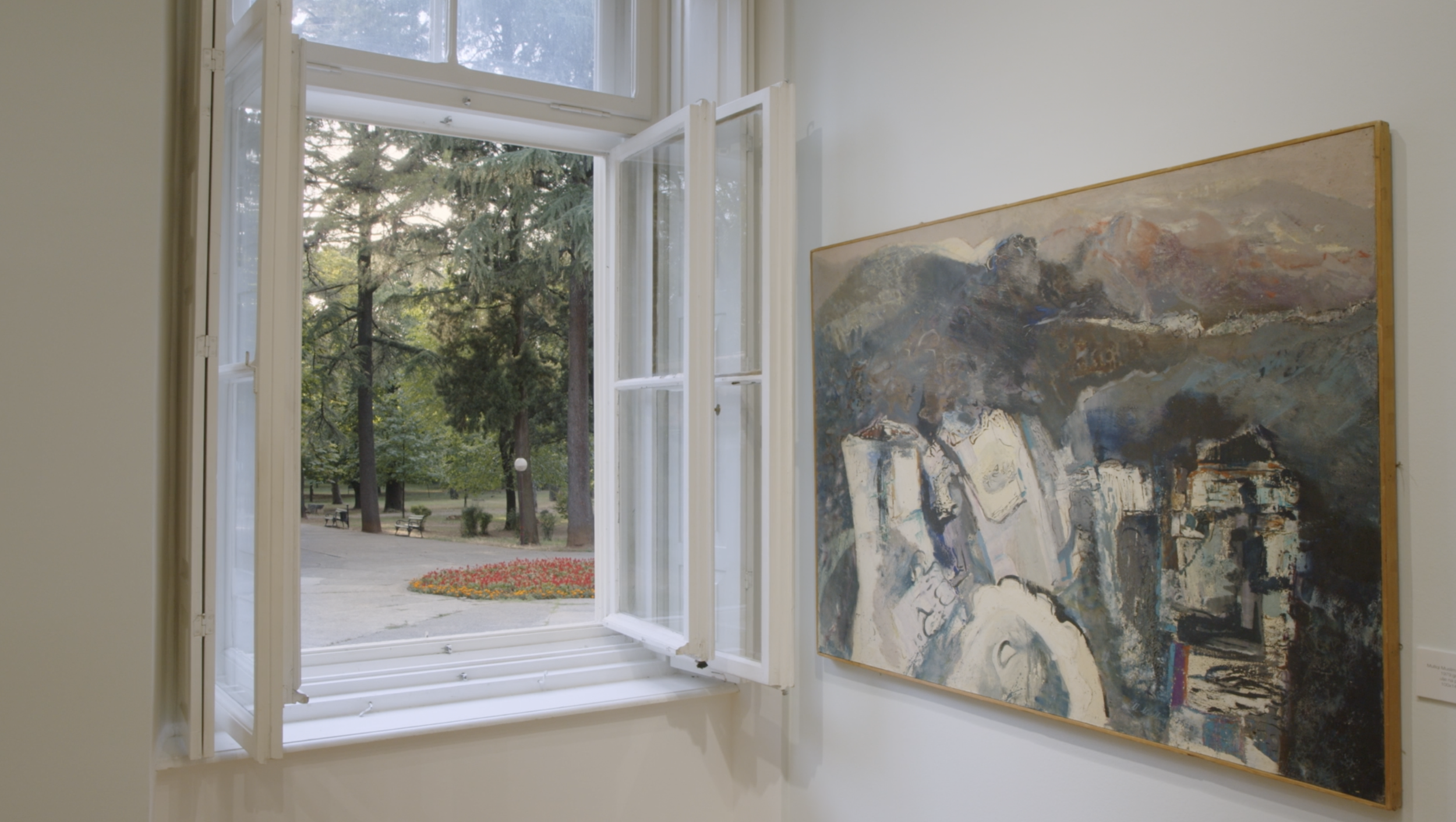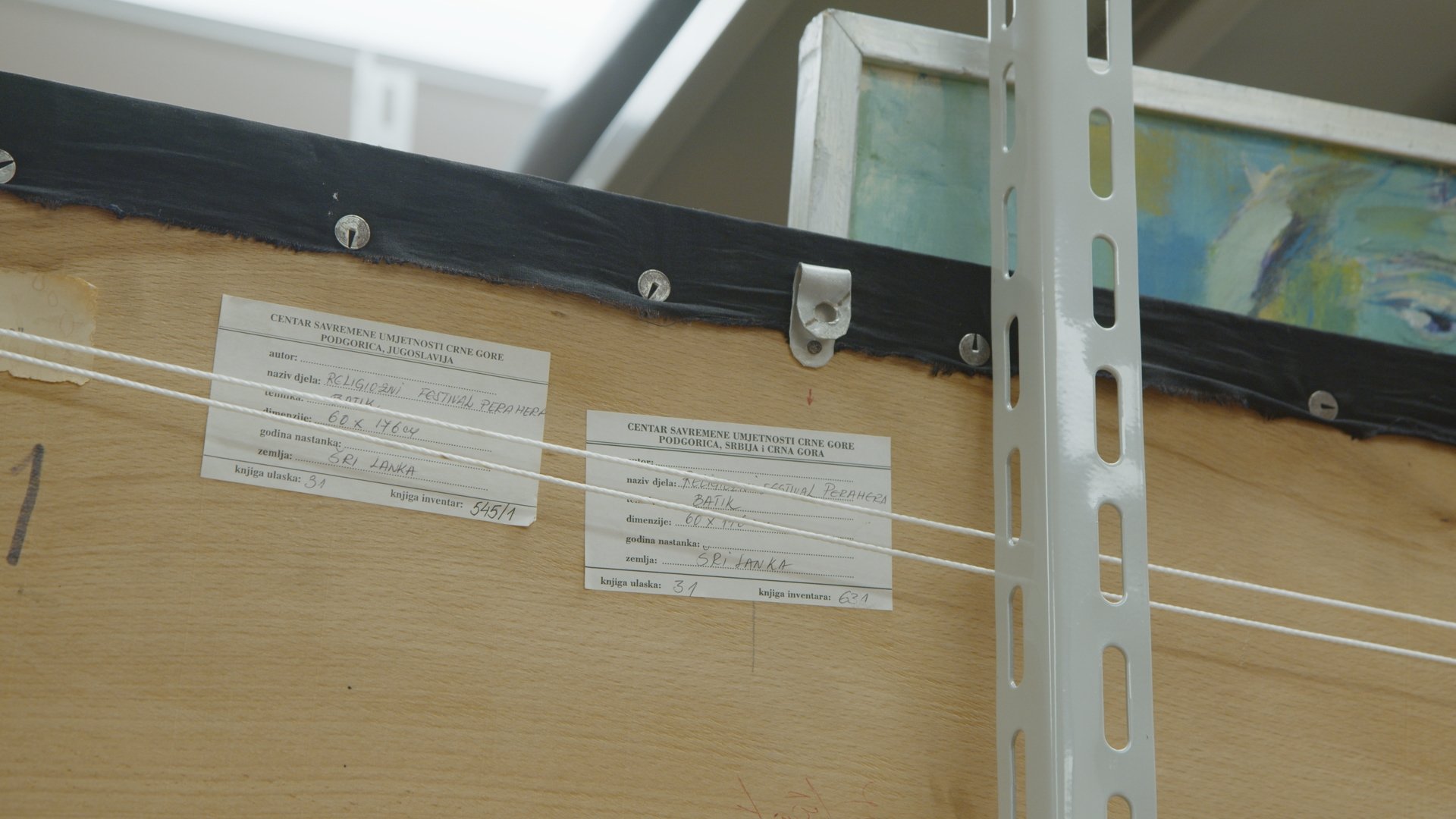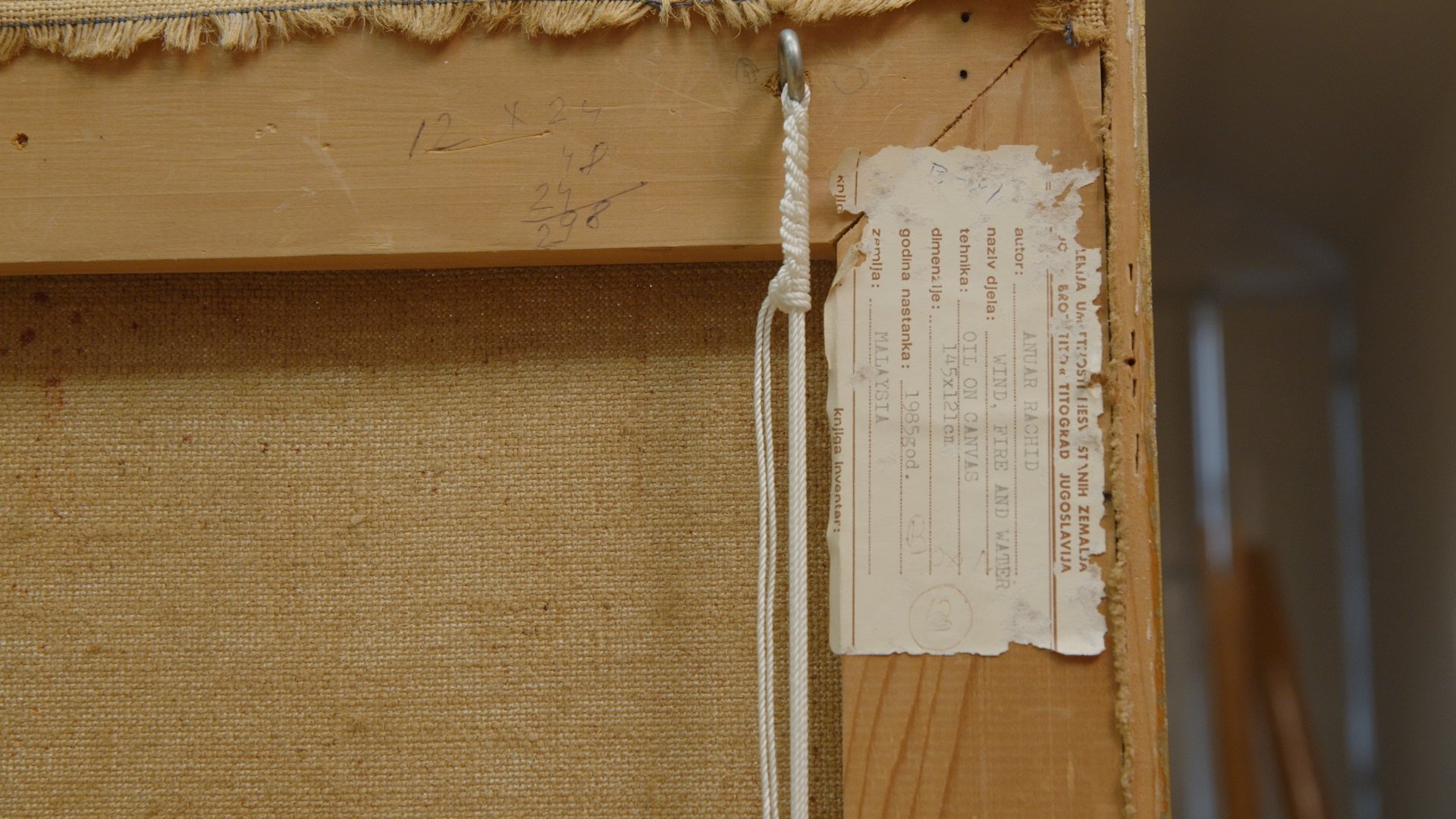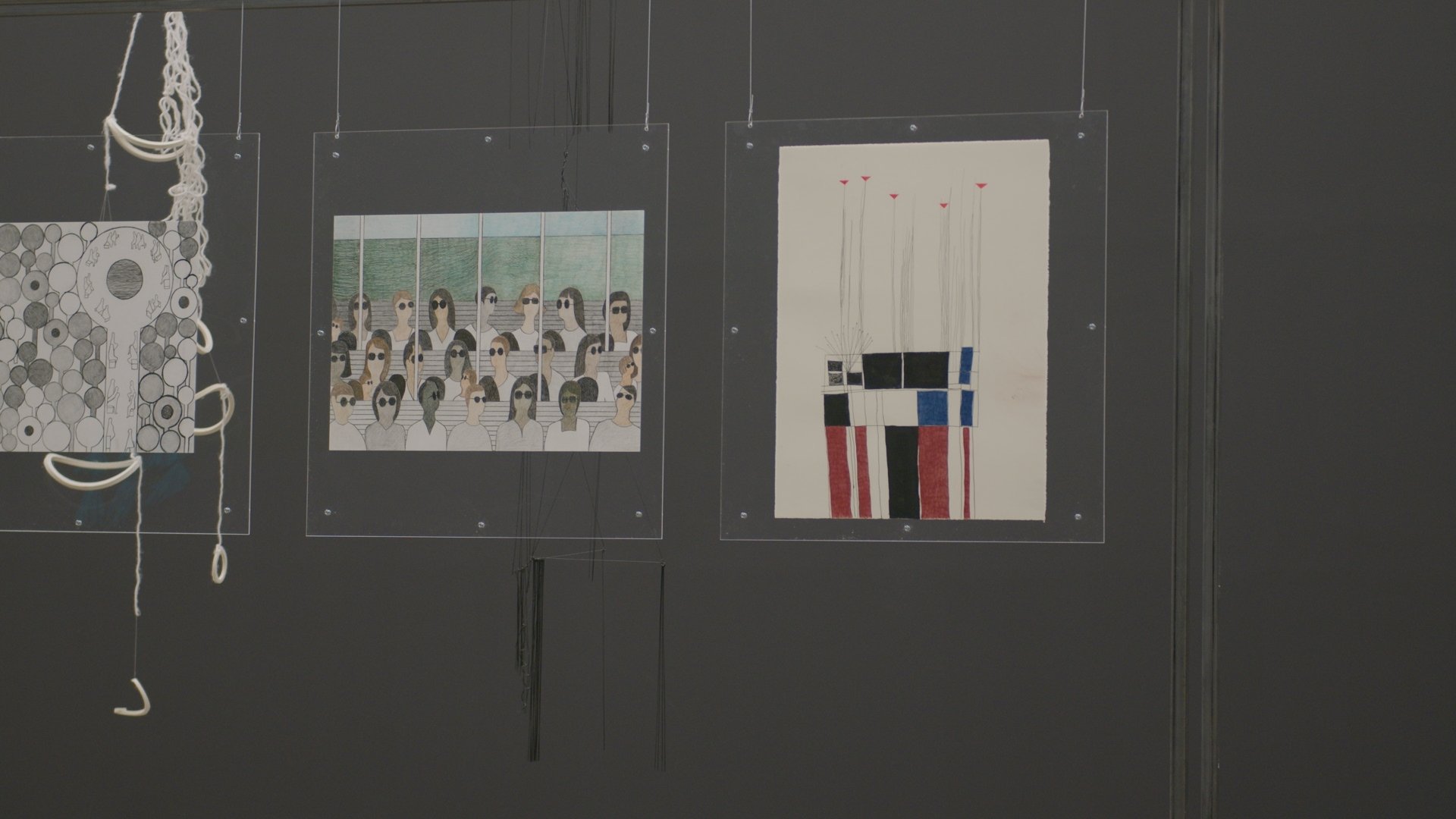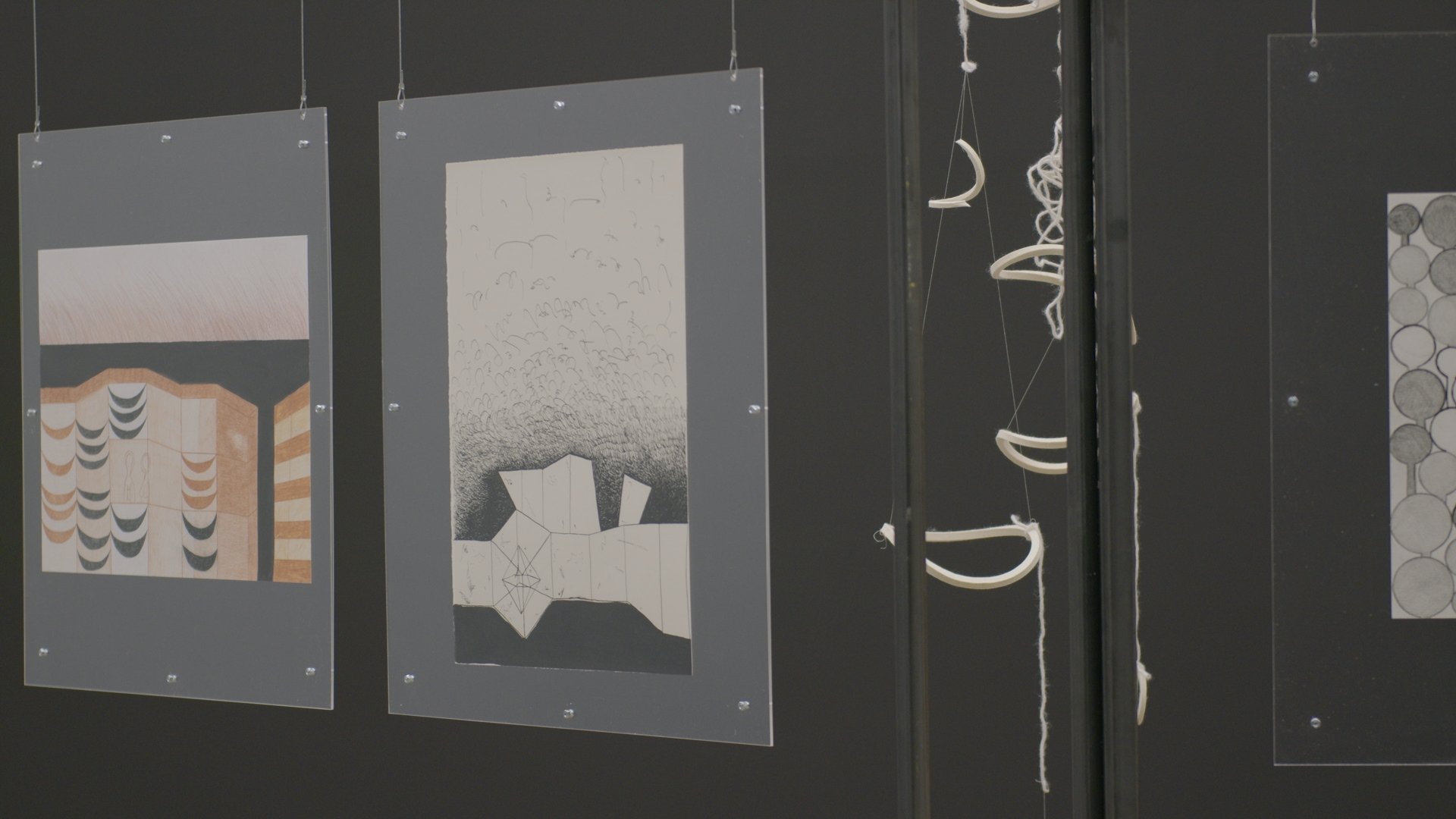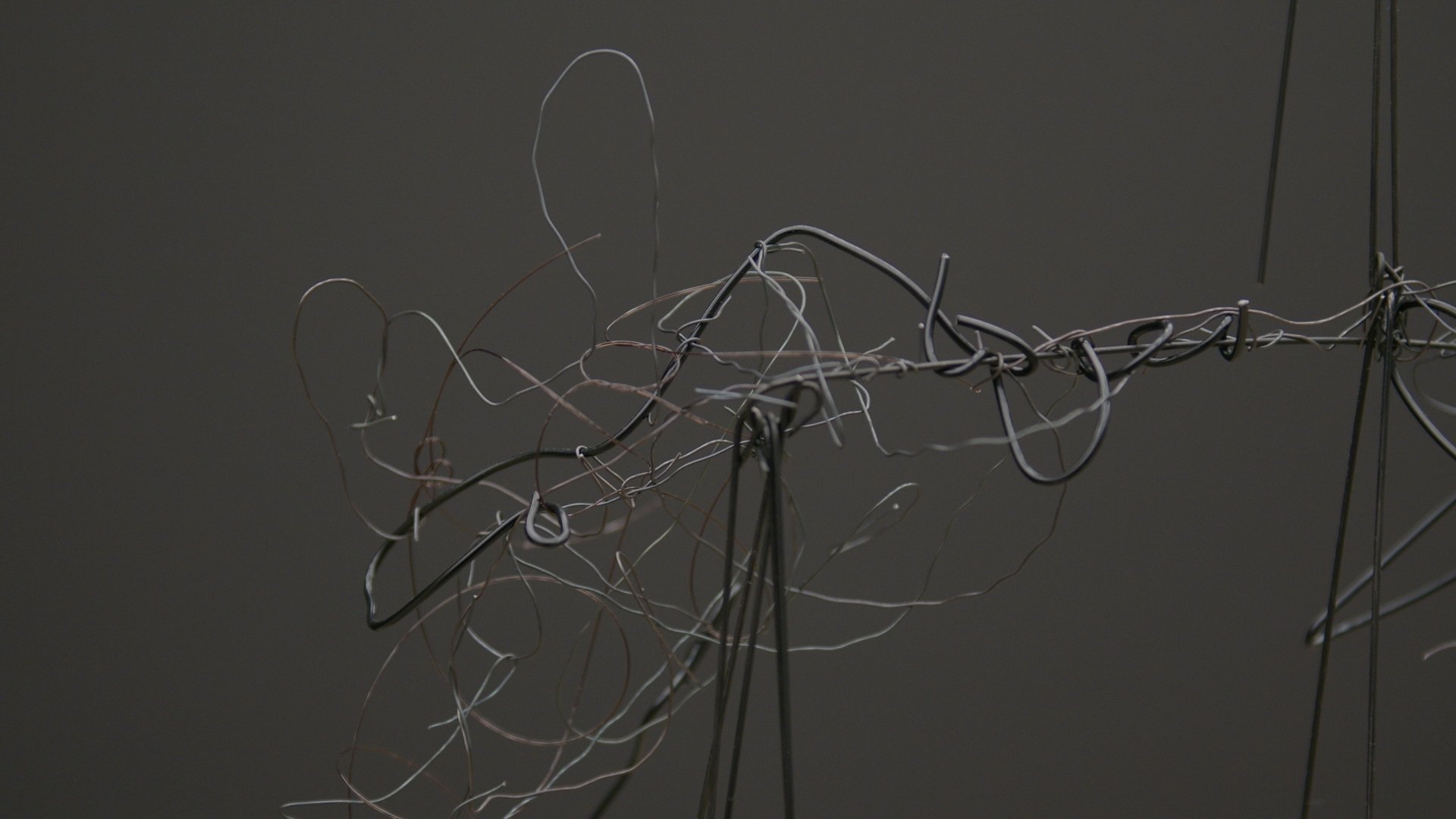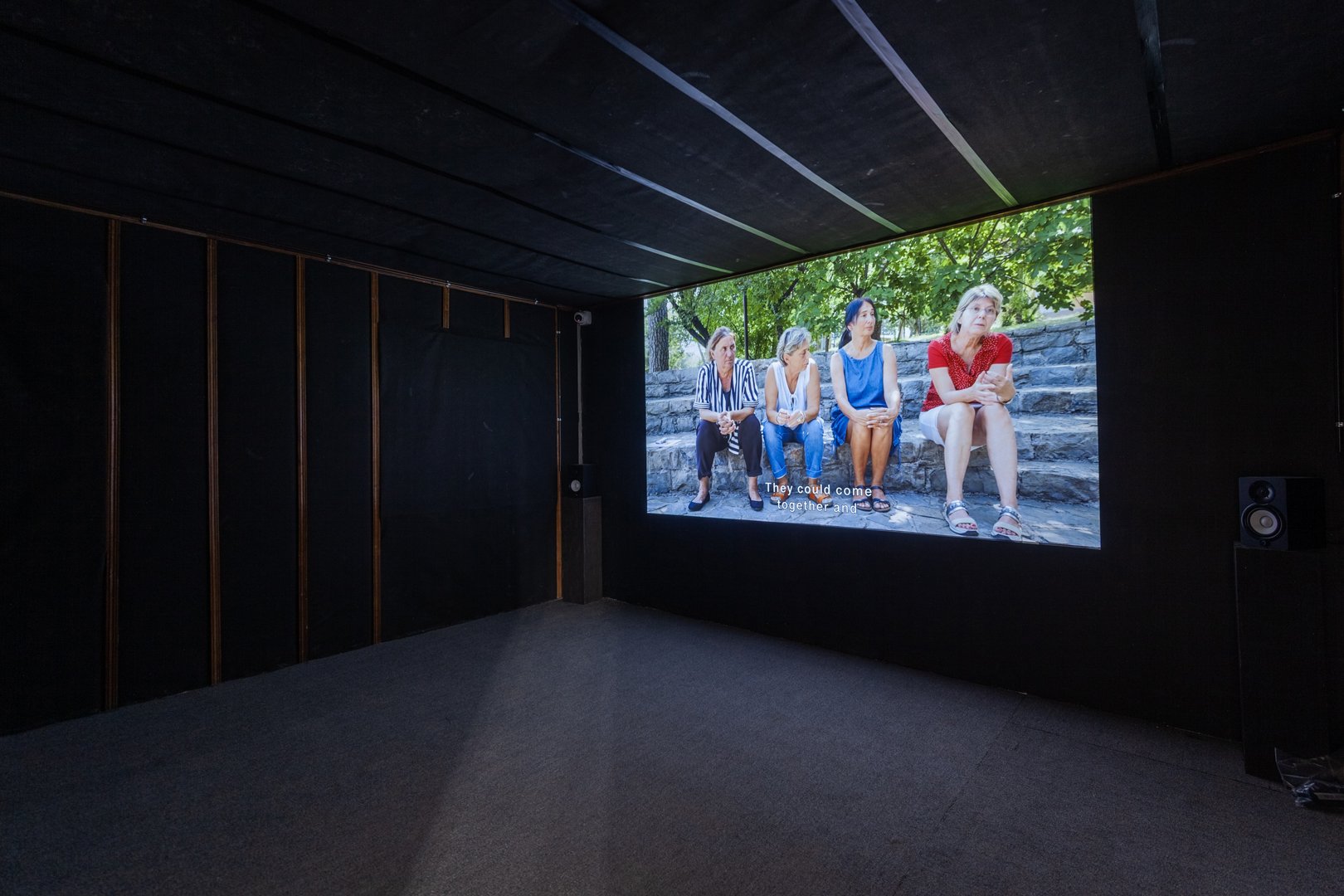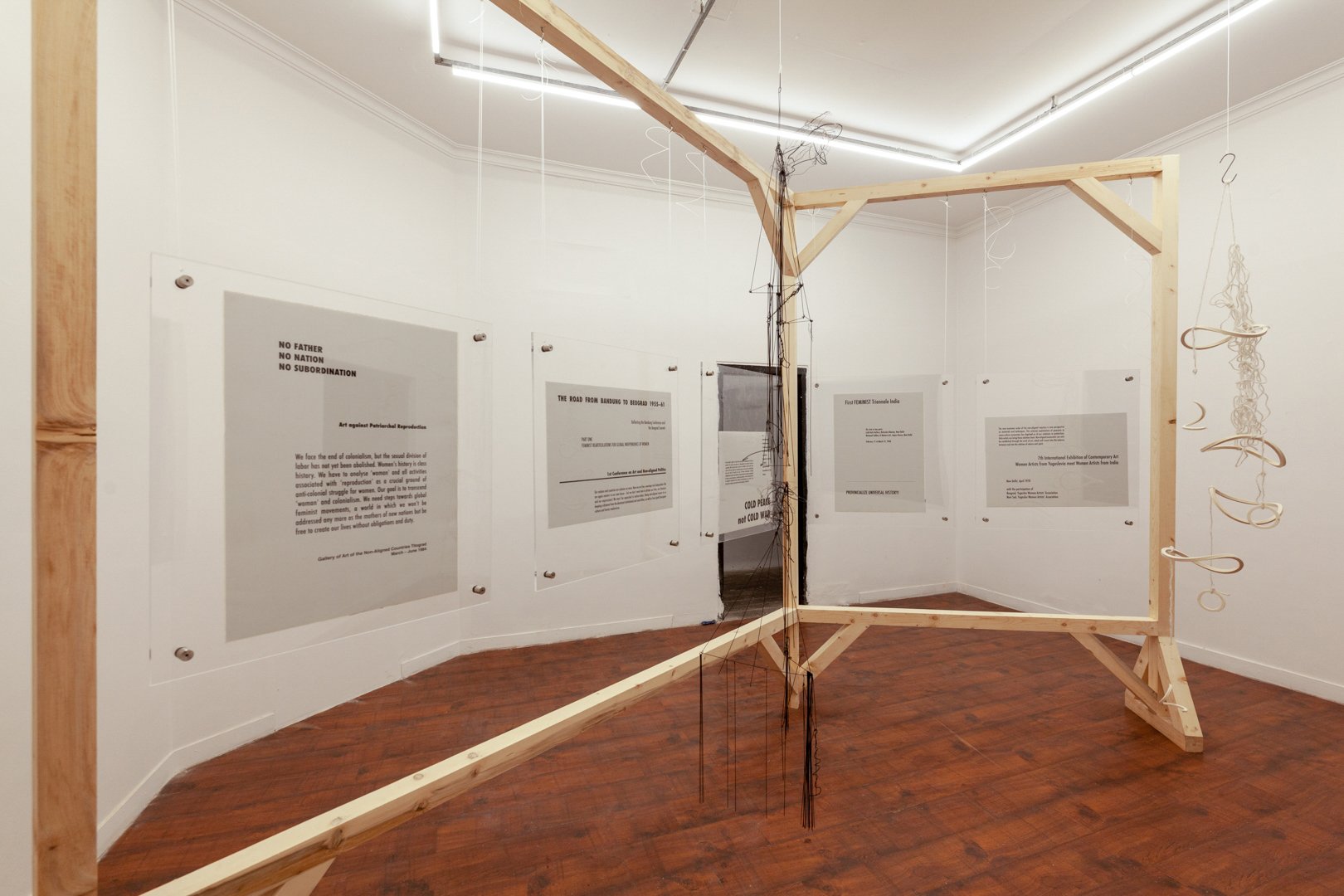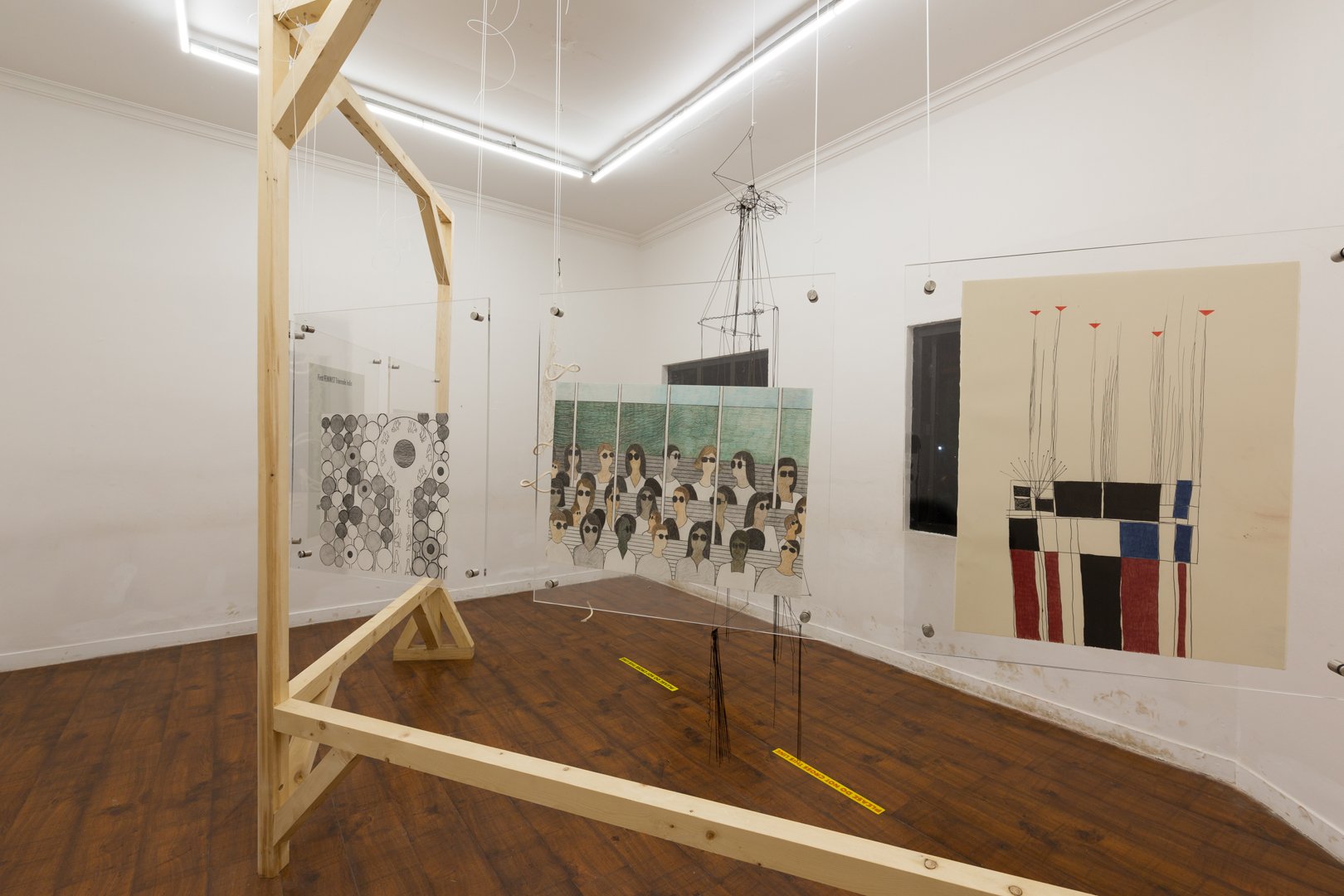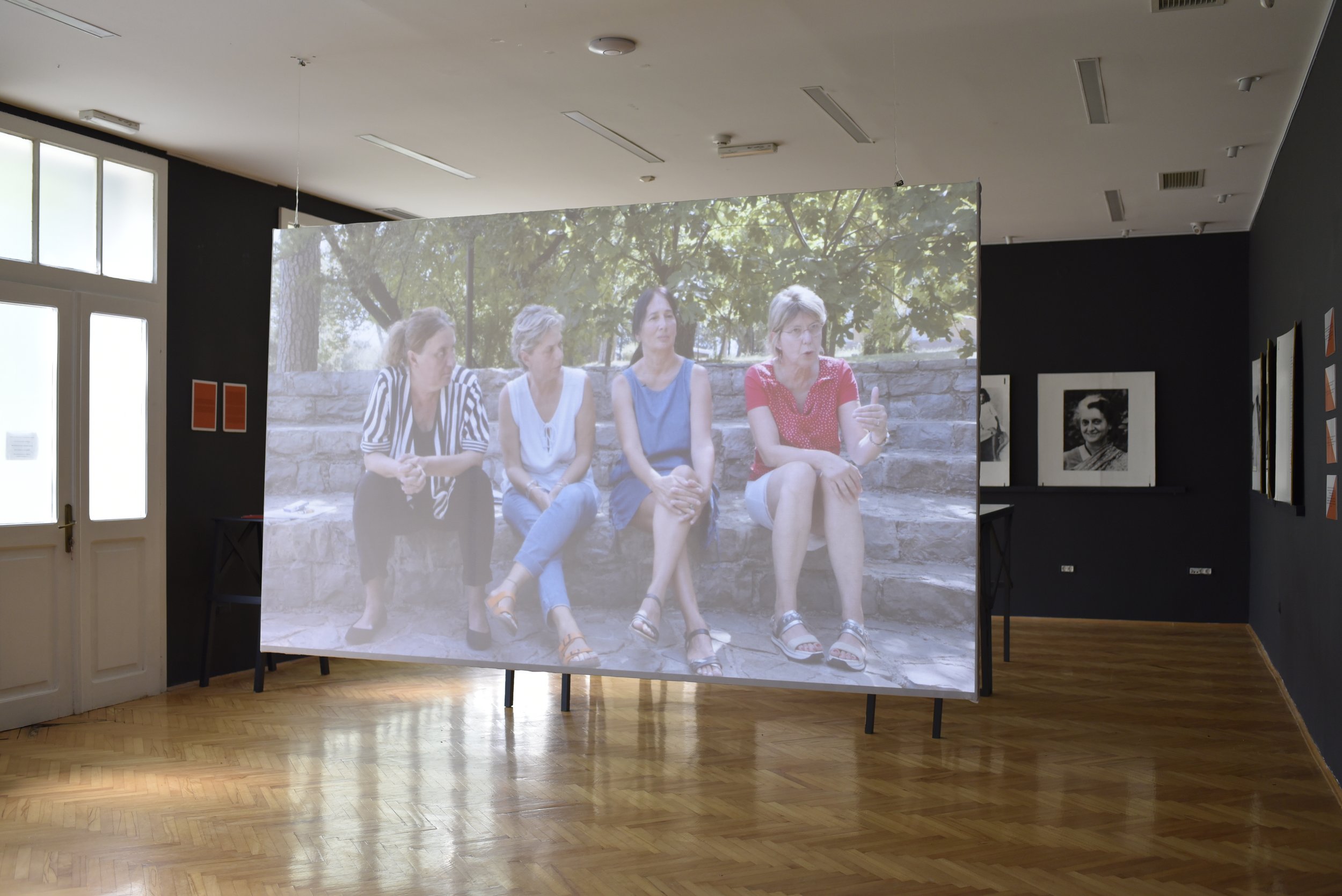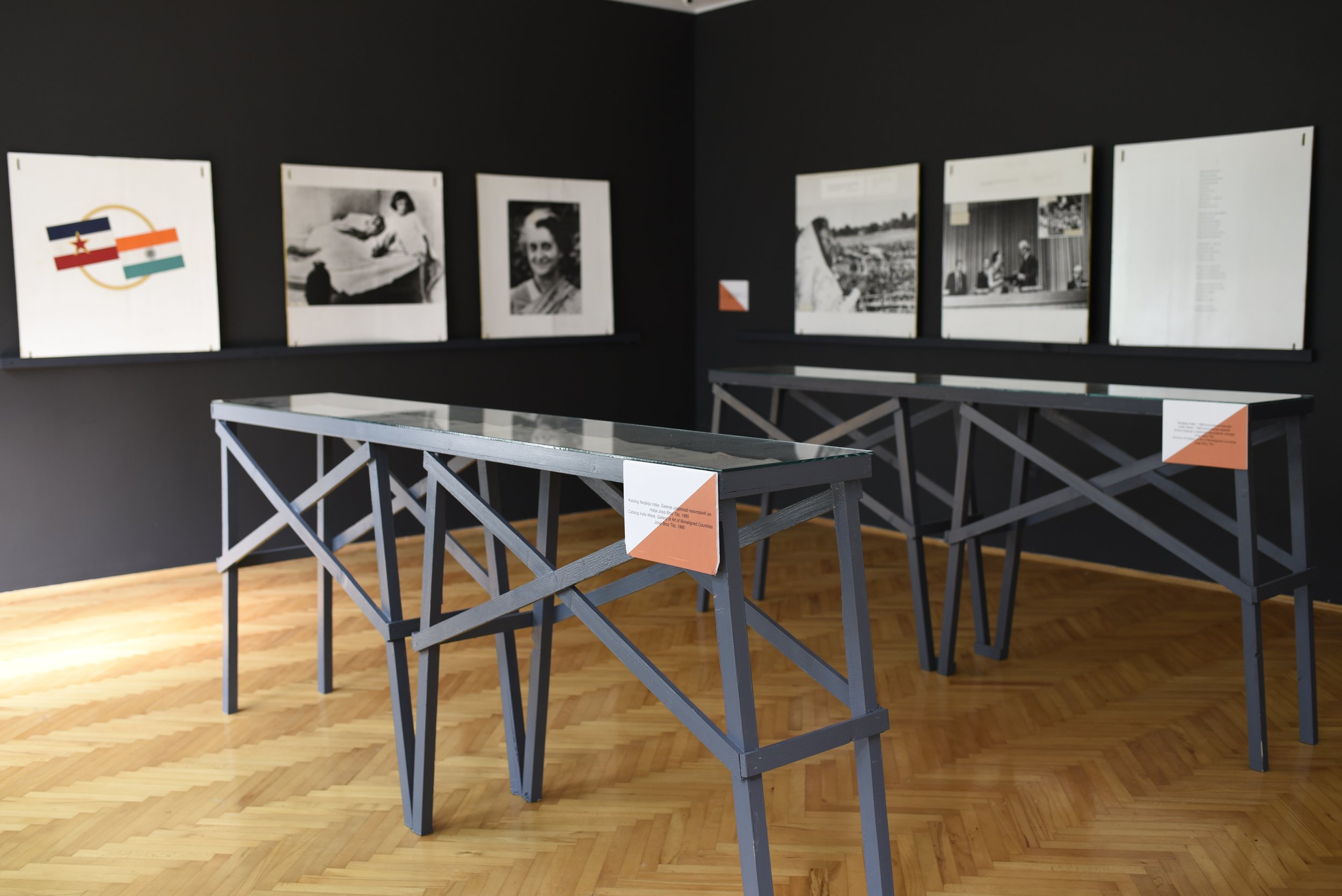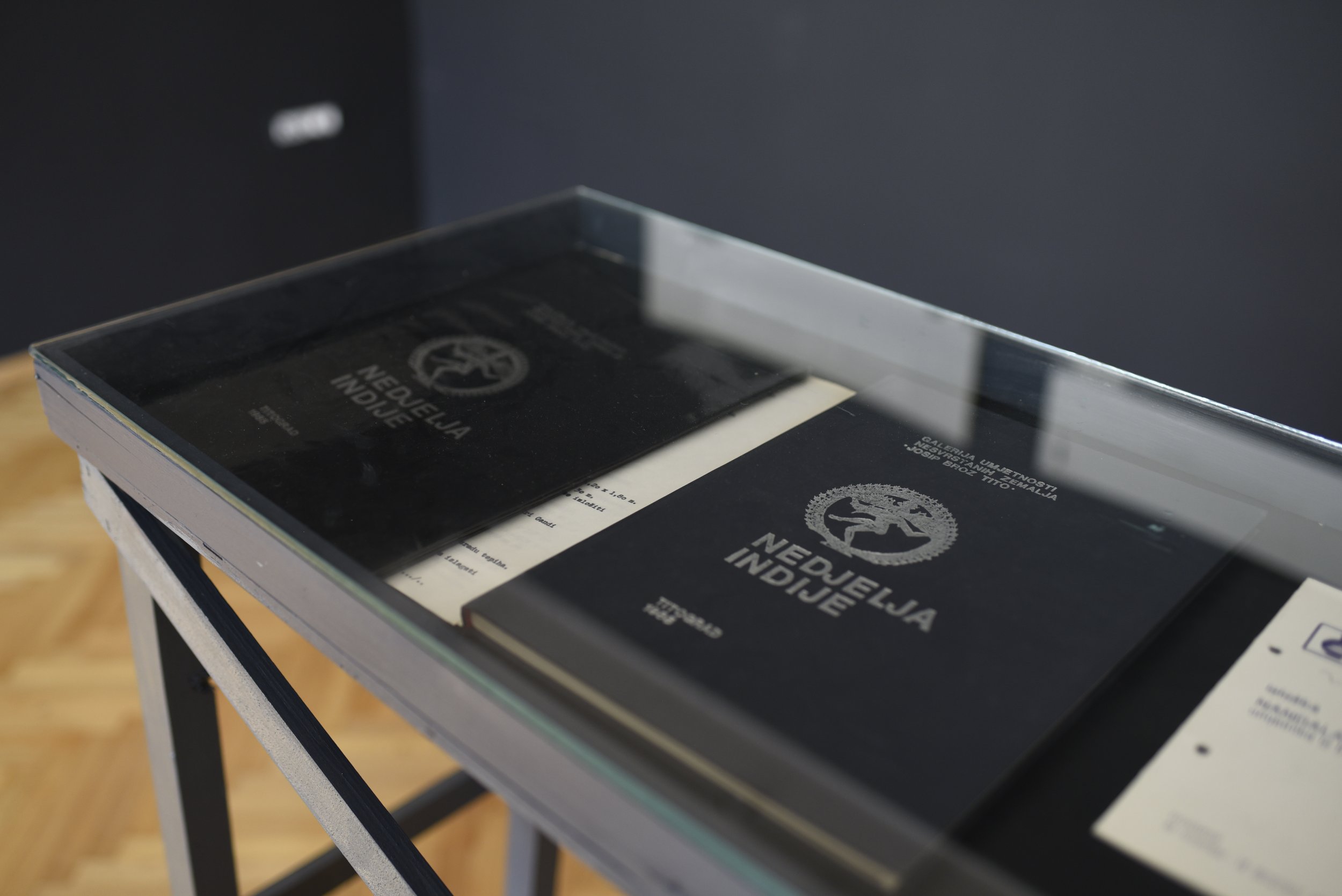Духовна Деколонизација (Spiritual Decolonization) proposes to recontextualize the non-aligned movement from a feminist point of view. The non-aligned movement had not only enabled international collaboration of women* from various countries, focusing on research about the social status of women, feminist scholars worked on improving living conditions for women in Third World countries over several decades under the umbrella of the Non-Aligned. The concept of non-alignement, a political and cultural refusal to align to normative models, especially the division of the world in two blocs, was embraced by the international women’s movement in the 1980s as a framework for political and cultural change. Decolonization and anti-fascism were the main concepts which signified solidarity across non-aligned countries and helped to develop a ‘third way’ as an ethical position. At the same time, culture and art played a great role, in the non-aligned movement. The acknowledgment of cultural equality and the claim of a cultural heritage different from the approach of classical modernity were strong principles from the beginning. Духовна Деколонизација (Spiritual Decolonization) is mentioned as a goal in the founding documents of the Gallery of Art of the Non-Aligned Countries in 1984.
Духовна Деколонизација (Spiritual Decolonization) – PART I, 2022
Single-channel video installation, color/sound, 45min.
Духовна Деколонизација (Spiritual Decolonization) Part I is a filmic assemblage, which centers on the lecture “Women, Development and the Non-Aligned” given by the Yugoslav partisan, politician and feminist Vida Tomsic in New Delhi in 1985. The film reflects on the friendship between Tomsic and Vina Mazumdar, an Indian grassroot feminist activist and pioneer of women’s studies. The setting of the lecture is in the Gallery of Art of the Non-Aligned Countries in Podgorica (formerly Titograd), which has been maintained and kept alive since the 1980s by four exceptional art workers. The historical encounter between Vida Tomsic and Vina Mazumdar is intervowen with their knowledge about the collection as well as the legacy of the non-aligned cultural politics.
Духовна Деколонизација (Spiritual Decolonization) – PART II, 2021
5 drawings, 2 hanging sculptures, metallic display, dimensions variable
Духовна Деколонизација (Spiritual Decolonization) – Part II is an homage to the few women from Yugoslavia who took part in the non-aligned exhibitions and, at the same time, a more general reflection on the position of women artists in artistic or political movements of the twentieth century. The drawings of Духовна Деколонизација (Spiritual Decolonization) – Part I are made after the works of three of them: Ankica Oprešnik (1919–2005), Zdenka Golob (1928–2019), and Tinca Stegovec (1927–2019). The back side of the drawings reveals fictional announcements, events that might have taken place, but were not possible at the time, which might circulate as fantasies about future connections of feminists transnationally. The hanging sculptures placed next to them, made of wire and wool thread, at once delicate and fuzzy, are produced from recuperated material—industrially produced, but linked to domestic work, to reparation, or to maintenance, (like wire or felt rings), they propose the maintainance and labor of relationships as a foundation for collaboration.
……………………………………………………………………………………………………………………………………………………………………………………
The exhibition Spiritual Decolonization is the result of a collaboration between The Art Collection of Non-Aligned Countries Laboratory and artist Ana Hoffner ex Prvulović. The exhibition title mirrors the title of Ana Hoffner ex Prvulović's work and is taken from the publication Pride and Duty (Gallery of Non-Aligned Countries Art, Josip Broz Tito, 1982).
The central element of the exhibition is a video installation by Ana Hoffner ex Prvulović, based on the lecture Women, Development, and Non-Alignment of Yugoslav partisan, politician, and feminist Vida Tomšić, presented in New Delhi, India, in November 1985. The second part of the exhibition comprises a selection of archival documents that trace the India Week event organized by the Ministry of Culture of India and the Gallery of Non-Aligned Countries Art Josip Broz Tito, held in Titograd from September 1st to 12th, 1985, commemorating the gallery's anniversary.
The exhibition intertwines documents that guide us through the layered historical relations between Yugoslavia and India, across various time frames and contexts, from the India Week event held in the first half of September 1985 to Vida Tomšić's lecture presented on November 8th, 1985 in New Delhi, organized by ICSSR (Indian Council of Social Science Research), and to artist Ana Hoffner ex-Prvulovic*'s visit to Podgorica in 2021 and conversations with the curators of the non-aligned collection (Marina Čelebić, Anita Ćulafić, Nada Baković, and Brankica Nedović) for the purpose of research and the production of the film Spiritual Decolonization, subsequently presented at the Kochi-Muziris Biennale 2022/23 in India.
By complex interweaving historical documents, events, encounters, and memories, the exhibition contemplates the legacy and potential of ideas that evolved and spread through various layers and intensities within the Non-Aligned Movement, with an emphasis on women's empowerment, decolonization, and deperipheralization. It simultaneously highlights the prominent role that culture and cultural exchange played in these processes from the perspective of today.

